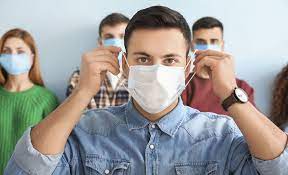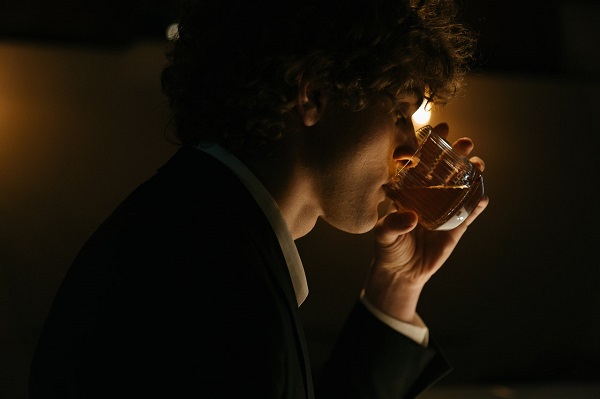When it comes to drug rehabilitation therapy, there is no one-size-fits-all approach. What works for one person may not work for another. That’s why it’s important to seek professional help when you or a loved one is struggling with addiction. This therapy can be an effective treatment for addiction, and it can help you or your loved one get on the road to recovery. In this blog post, we will discuss the different types of therapy in drug rehabilitation and how they can help you or your loved one overcome addiction.
Contents
What Is Drug Rehabilitation Therapy?
Drug rehabilitation therapy is a form of psychotherapy that helps people struggling with addiction to identify and process their addictive behaviors. It can also help them develop coping skills and gain insight into the root causes of their addiction. This type of therapy typically includes one-on-one counseling sessions, group counseling sessions, or both. In this type of therapy, the therapist works with the individual to address underlying issues that may be contributing to their addiction.
Types Of Drug Rehabilitation Therapy

There are several types of drug rehabilitation therapy available, depending on the individual’s needs. These include:
Inpatient Rehabilitation
Inpatient rehabilitation is an intensive form of therapy where the patient lives at a drug rehab facility while they undergo treatment. This type of therapy includes individual and group sessions, as well as activities such as yoga, art therapy, music therapy, and exercise.
Outpatient Rehabilitation
Outpatient rehabilitation is a less intensive form of treatment that allows patients to live at home while attending regular sessions with a therapist or other healthcare provider. This type of therapy may include individual and group counseling sessions, family counseling sessions, and life skills training.
Faith-Based Treatment
Faith-based treatment is an option for individuals who are looking to address their addiction in a spiritual manner. This type of therapy incorporates religious beliefs into the recovery process and may include prayer, meditation, Bible study, and other spiritual activities.
Detoxification
Detoxification is the process of removing toxic substances from the body. During this process, a person will be monitored for any physical or psychological symptoms that may arise as they rid their body of drugs and alcohol. Medication therapy may also be used to help reduce withdrawal symptoms during detoxification.
Medications For Drug Addiction
In addition to the therapies discussed above, medications may also be used to treat drug addiction. These medications can help reduce cravings, improve mood, and help increase the chances of long-term abstinence from drugs and alcohol. Commonly prescribed medications include buprenorphine, naltrexone, methadone, and Suboxone.
Therapies Used In Drug Rehabilitation Program

There are various types of therapies used in drug rehabilitation programs.
Cognitive Behavioral Therapy
Cognitive Behavioral Therapy (CBT) is a type of therapy that helps individuals identify and adjust unhealthy patterns of thinking and behavior. Through this type of therapy, individuals learn how to recognize and respond better to triggers that can lead to addiction.
Biofeedback Therapy
Biofeedback therapy is a type of psychotherapy that uses sensory feedback to help patients understand and control their emotional and physical responses. This type of therapy can help individuals learn to better control their emotions and physical responses, which may help them abstain from drugs or alcohol.
Dialectical Behavioral Therapy
Dialectical Behavioral Therapy (DBT) is another type of psychotherapy that can be used to help individuals struggling with addiction. This type of therapy focuses on changing unhelpful thought patterns and behaviors in order to create positive changes.
Psychodynamic Therapy
Psychodynamic therapy is a type of psychotherapy that helps individuals explore their unconscious thoughts, feelings, and behaviors in order to gain insight into their addiction. This type of therapy can help individuals gain a better understanding of the underlying issues that are driving their addiction.
Chemotherapy
Chemotherapy is a type of medication therapy that uses drugs to help reduce cravings and manage withdrawal symptoms. This type of therapy may be used in combination with other types of treatment to help individuals abstain from using drugs and alcohol.
Holistic Therapy
Holistic therapy is a type of treatment that focuses on the overall health and well-being of an individual. This type of therapy typically combines traditional psychotherapy with natural remedies, such as nutrition, exercise, and stress management.
Benefits Of Rehabilitation Drug Therapy

Here are some of the key benefits of drug rehabilitation therapy:
- Improved physical health: It can help individuals improve their overall physical health by reducing cravings, minimizing withdrawal symptoms, and providing medical care.
- Emotional stability: Drug rehabilitation therapy can help individuals develop healthier coping skills to manage stress and emotions.
- Improved relationships: This can help individuals learn how to build healthier relationships and connect with other people.
- Reduced risk of relapse: It can help individuals reduce their risk of relapse by teaching them to recognize and respond better to triggers.
- Improved quality of life: Drug rehabilitation therapy can help individuals improve their overall quality of life. It helps them rebuild healthy lives and relationships.
- Improved mental health: This therapy can help individuals improve their mental health by providing them with the tools and resources needed to manage their addiction.
- Recovery from addiction: It can help individuals recover from their addiction by providing them with the necessary support and guidance for a successful recovery.
- Increased self-esteem: Drug rehabilitation therapy can help individuals increase their self-esteem by recognizing and celebrating their progress.
How To Start The Drug Rehabilitation Therapy?
Here are some tips on how to start drug rehabilitation therapy:
- Consult a doctor and get evaluated for any underlying mental or physical issues that may be contributing to your addiction.
- Develop a treatment plan that is tailored to your individual needs and goals.
- Make sure you understand the potential risks and benefits associated with each type of treatment.
- Seek professional help from a qualified therapist or support group.
- Be open to trying different therapies and find one that works for you.
- Create a support system of family and friends to help you stay on track with your treatment plan.
Conclusion
Drug rehabilitation therapy is an important part of the recovery process for individuals struggling with drug addiction. This type of therapy can help individuals identify and address underlying issues that may be contributing to their addiction. It helps to gain better control over their emotions and physical responses, reduce cravings, and increase their chances of long-term abstinence from drugs and alcohol. If you are struggling with addiction, it is important to seek professional help in order to receive appropriate treatment.
For more information, please contact MantraCare. Addiction is a chronic and often relapsing disorder characterized by compulsive drug-seeking and use despite harmful consequences. If you have any queries regarding Online Addiction Counseling experienced therapists at MantraCare can help: Book a trial Online therapy session


